River Ganga
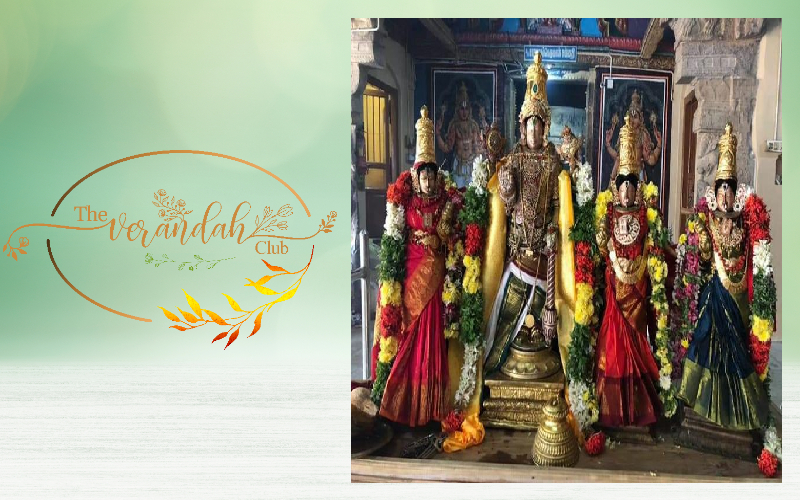
River Kaveri is a sacred river located in South India. One fine day, she prays to Lord Vishnu at Thirucherai that she wanted to attain an exalted status among all the rivers of Bharat. Kaveri prays under a Peepal tree and Lord Vishnu presents himself in front of her in the Tamil month of Thai as a bright and lustrous child. Immediately, she offers her obeisance to the Lord. After which, Lord Vishnu presents himself on his Garuda Vaahana along with his consorts – Shridevi, Bhudevi, Neeladevi, Mahalakshmi and Saranayagi. A happy Kaveri requests the lord to forever be present at Thirucherai (near Kumbakonam). The lord then grants her the status of River Ganga. Thereafter, Lord Vishnu begins to reside on this river as Lord Ranganatha.
This was the outcome of an old incident. Once upon a time, the rivers, Ganga, Yamuna, Saraswati, Sindhu, Kaveri, and Godavari, were playing at the foothills of the Vindhya mountains in the form of maidens. It was at this time that a Gandarva, Visvawas, was passing en route. He offered his salutations and proceeded to walk. All the seven rivers wanted to know if the salutations were meant for them, so they questioned him. The Gandarva stated that it was for the most sacred amongst them and went away.
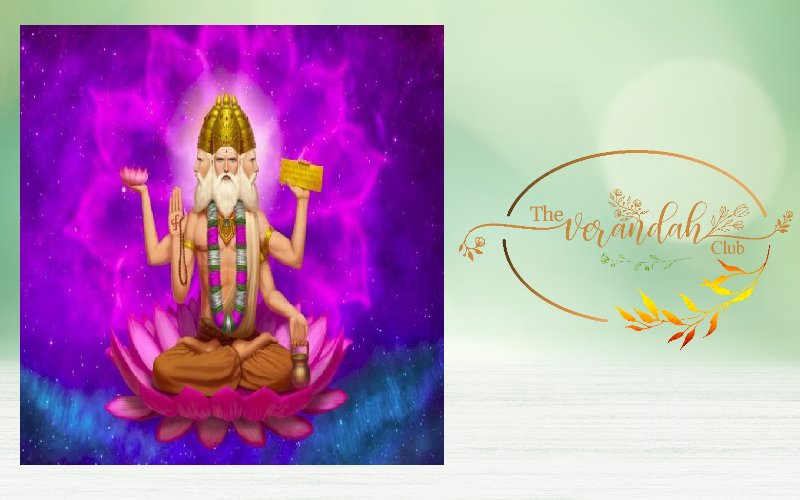
Except for Kaveri and Ganga, the rest of them went away from the spot. Both went to Lord Brahma for adjudication. Lord Brahma stated that Ganga was the greater one. The reason was obvious; Lord Vishnu had taken the Trivikrama incarnation and his foot reached Satya lokha (residence of Brahma). In order pay His deference, Lord Brahma used the waters from his Kamandala and washed His Holy Feet. This water thus became the sacred Ganga.
An upset Kaveri wanted a similar status and Lord Brahma advised her to pray to Lord Vishnu to attain the same. Her prayers at Thirucherai were amply rewarded. Even today, devotees could visit the shrines of Ranganatha at Srirangapattinam, Shivasamudram (Jaganmohana Ranganatha) and Sri Rangam. All the above-mentioned icons of Vishnu as Lord Ranganatha are found on the river Kaveri. The river attained this exalted status by washing His Holy Feet. Similarly, devotees who surrendered themselves onto the holy feet of Lord Narayana will attain a special status.
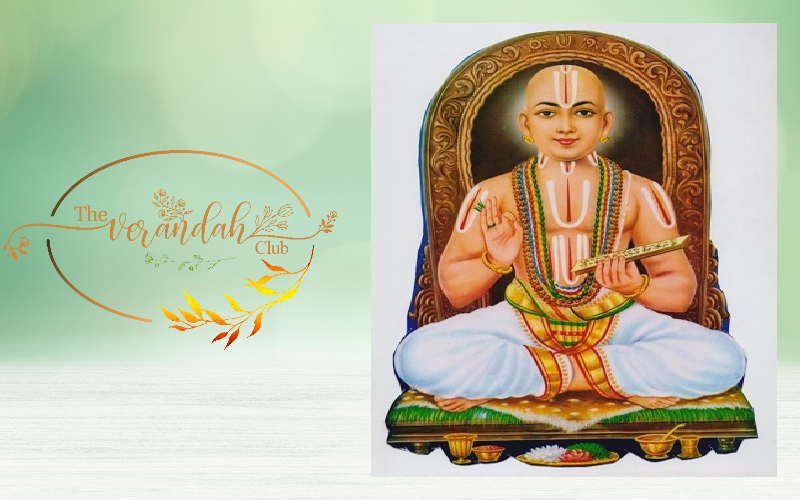
Swami Vedanta Desika (1268 - 1369) had composed 1008 verses eulogizing the sandals of Lord Ranganatha. This chaste composition was created in just one night. The sacred sandals of Lord Ranganatha are known as Paduka in Sanskrit. The composition is, therefore, known as ‘Paduka Sahasram’. Swami Desikan extolls the glory of the Lord’s Paduka-s in this marvelous composition. Let us look at the glory of river Sarayu, a tributary of river Ganga through the words of Swami Desikan.
During the period of Lord Rama’s exile, His sandals were sought by his younger sibling, Bharata. Bharata took the sandals to Nandhigram, located on the outskirts of Ayodhya, and got them coronated. They were placed on the royal throne and Bharata began to rule on behalf of Lord Rama. These sandals, Paduka-s, were also taken around the streets of Ayodhya by Shatrunjaya – the royal elephant. However, Bharata chose to enter the city only on the return of Lord Rama.
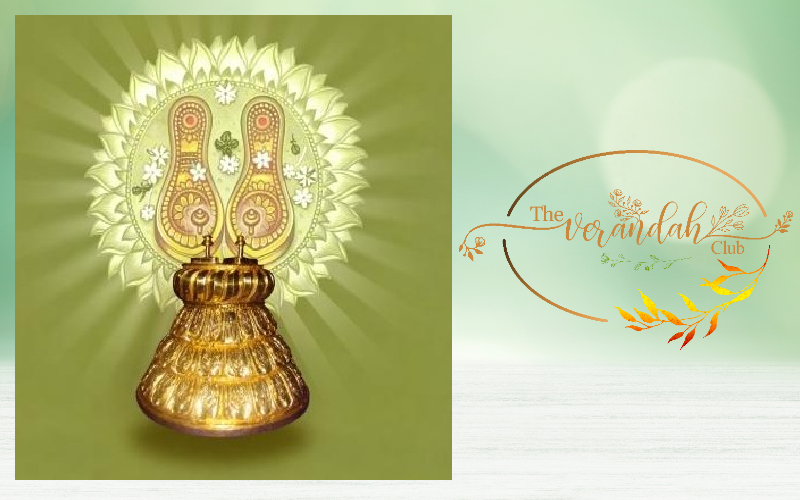
The Loyal Bharata would offer ablutions to the Paduka-s of Lord Rama every day. Swami Desikan stated that the water thus used to wash the Paduka-s flowed into river Sarayu and made it sacred. In turn, this river added holiness to river Ganga by joining it. River Ganga, thereafter, drained herself into the ocean (Bay of Bengal). The ocean became sacred once more on receiving the holy water that caressed the Paduka-s of Lord Rama, who happens to be none other than Lord Vishnu. The representative rule of the Parama Bhagavata, Prince Bharata was said to be equal to or even better than Ramaraajya. This proved that our association with the Holy Feet of the Lord will give us everlasting bliss.
Lord Narayana incarnated as Vamana for the purpose of taming King Mahabali, the grandson of Prahlada. The demon king had surrendered on to the Holy Feet of Lord Narasimha and therefore the Lord promised that he would not exterminate his descendants in order to fulfil his pledge to Prahalada. Lord Vishnu incarnated as the radiant Vamana. He proceeded to the venue where King Mahabali was performing a grand Yagna and sought for three measures of space from him. Mahabali granted the same and Lord Vamana grew by taking the form Lord Trivikrama. The waters offered by Vindyavali and her husband Mahabali and that offered by Lord Brahma, converged together and became river Ganga.
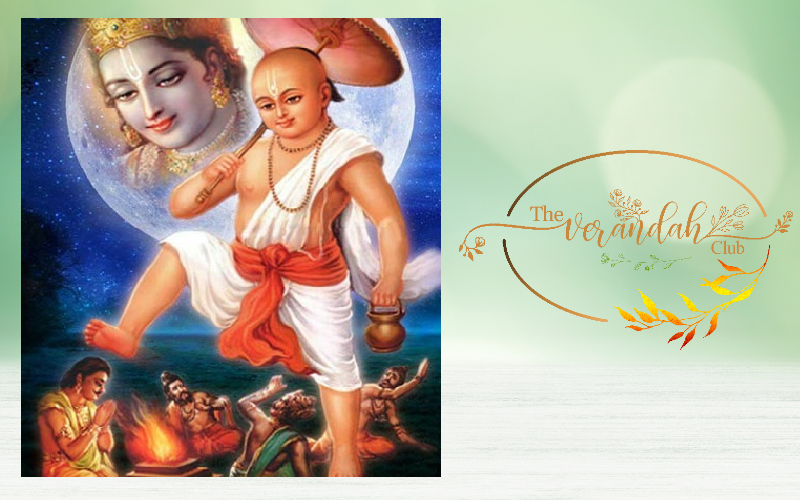
Lord Trivikrama wanted to know where to measure the third pace. He had already measured the earth (first) and the skies (second). King Mahabali removed his crown and offered his head to the Lord. The already wet feet of the Lord which was dripping with river Ganga was placed on the head of Mahabali. The blessed ruler went into the netherworld thereafter. He continues to visit his people on the day of Onam year on year. The holy association of King Mahabali with the feet of Vishnu and Ganga had given him a special position which was unheard of until then.
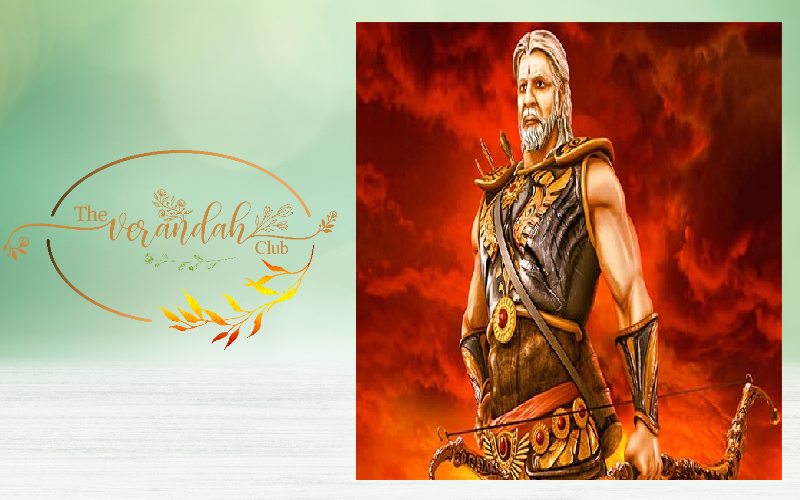
The great Bhishma was born as the son of the river Ganga and King Shantanu during the dwaaparaa yuga. He came to be known as ‘Gangeya’ and ‘Devavratha’ thereafter. His association with river Ganga and devotion to Lord Vishnu led him to compose the sacred ‘Sri Vishnu Sahasranamam,’ after the Mahabharata war. Lord Vishnu, as Krishna, stood nearby and received the composition of Devavratha, who came to be known by the name Bhishma. This great man’s advice on governance was sought by the newly coronated king of Hastinapura, Yudhishthira. Sage Veda Vyasa gave us the gist of this conversation in the Mahabharata. Once again, the holy association of Bhishma with the divine mother Ganga, who originates from Vishnu Paadam, came in as a blessing to us.
All these stories from the past, talk about the greatness of river Ganga – the fountainhead of Indian civilization. Let us explore more about the river by taking part in the imaginary voyage @ the Verandah Club.
NEXT ARTICLE